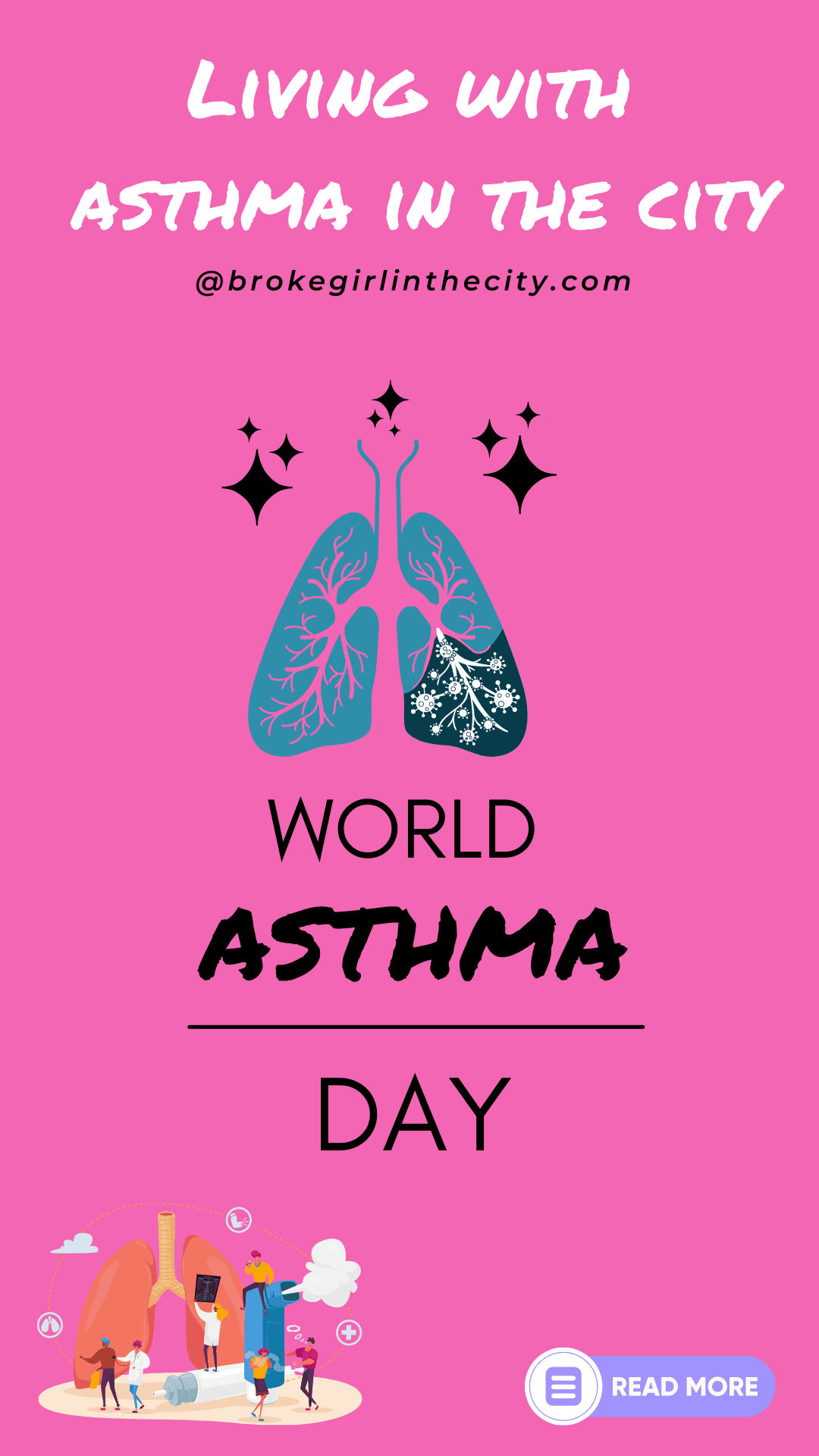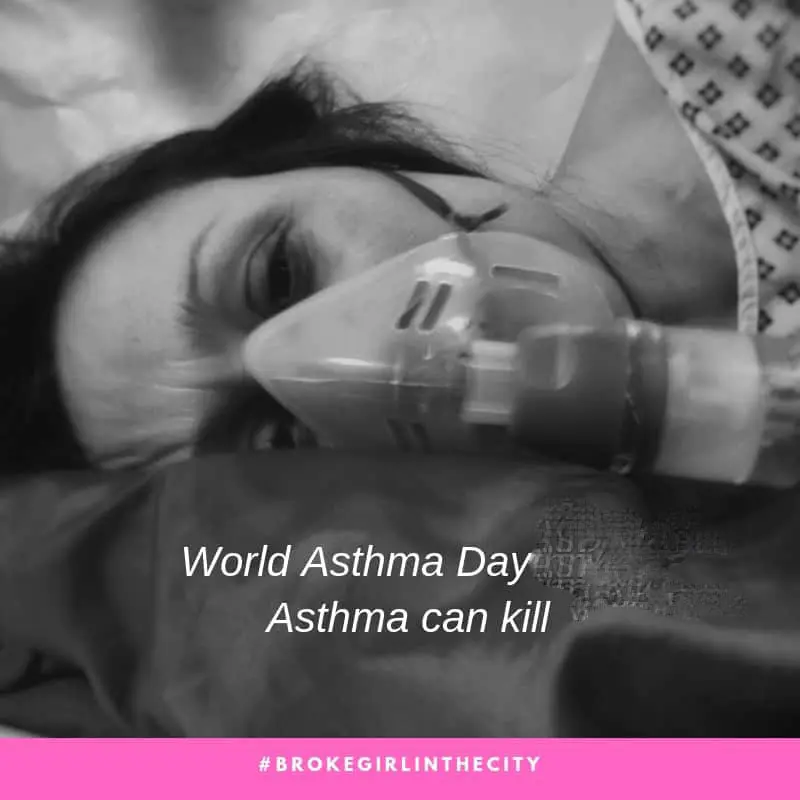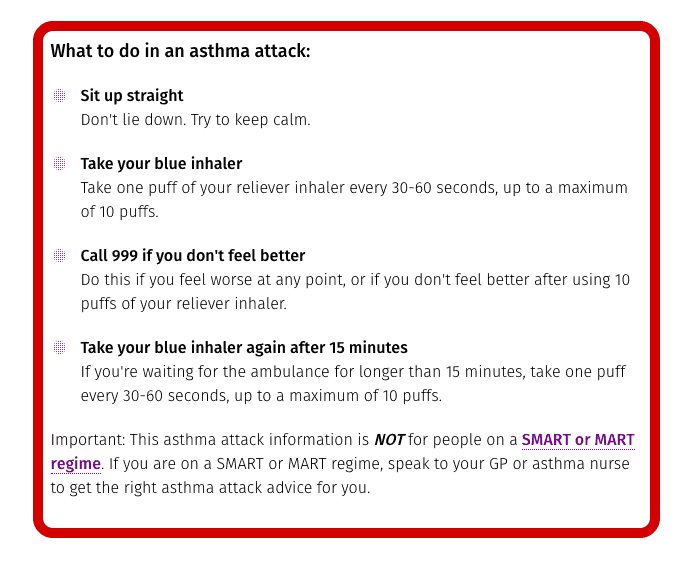
World Asthma Day
Living with Asthma in the City
World Asthma Day is an annual event organized by the Global Initiative for Asthma (GINA) to improve asthma awareness and care around the world. Asthma may be widespread, but many people are unaware that asthma kills. I have been living with brittle asthma all of my life.
After being diagnosed with multiple cases of bronchitis as a child. At the age of 6 years old, I was very poorly in bed, struggling to breathe, when my mother and friend decided to call for an ambulance. The hospital said it was the worst case of Asthma they had ever seen. I was hours away from dying. My body had turned blue (cyanosis), meaning there was not enough oxygen in the bloodstream. I was immediately bundled into an oxygen tent, which was the first of many hospitalisations over the years.

Asthma can and does kill
According to Asthma.org, there are 5.4 million people who suffer from asthma in the UK. A quarter of a million people have severe asthma. ‘Every 10 seconds, someone is having a potentially life-threatening asthma attack in the UK. Every day, the lives of three families are devastated by the death of a loved one from an asthma attack, and tragically two-thirds of these deaths are preventable.’
Key facts:
- 5.4 million people in the UK are currently receiving treatment for asthma: 1.1 million children (1 in 11) and 4.3 million adults (1 in 12).
- Asthma prevalence is thought to have plateaued since the late 1990s, although the UK still has some of the highest rates in Europe, and on average, three people a day die from asthma.
- In 2016 (the most recent data available), 1,410 people died from asthma.
- The NHS spends around 1 billion a year treating and caring for people with asthma.
What types of Asthma are there?
There are a number of forms of Asthma: Occupational asthma, Seasonal Asthma, Severe Asthma (brittle), and Childhood/Adult Asthma. Some people grow out of it in adulthood, while others may become affected later. It’s important to understand what triggers your asthma. Mine is triggered by pollen, dust, cats, dogs, grass, feathers, flu/virus/colds and the change in seasons. Stress can often be a trigger too. I take antihistamines most of the year around and can’t go to someone’s house with a pet without taking one.

Asthma deaths soar due to air pollution in the city
Unfortunately, pollution living in the city is another trigger for asthmatics. 64,000 people are killed by air pollution in the UK every year – up from a previous estimate of 39,000.
An article by The Guardian states that a record number of people are dying of asthma. Experts have warned growing air pollution and a lack of basic care could be to blame.
In England and Wales, 1,320 people died of asthma last year. Office for National Statistics data shows a sharp rise of more than 25% over a decade. No one must feel this more than the mother of Ella Kissi-Debrah, a nine-year-old girl who died during an asthma attack linked to air pollution (see photo above).
I had an Asthma attack on London Bridge when the air pollution and pollen count were incredibly high. Always carry an inhaler with you when you are out and about in London. Also, make sure you take antihistamines when the pollen count is high. I always close the windows during the evening and when air pollution is at its worst.
What is Asthma?
Asthma affects your airways – which carry air in and out of your lungs. The airways often become inflamed if exposed to triggers such as allergens. Asthma.org: this is what happens with Asthma:
- The muscles around the walls of the airways tighten so that the airways become narrower.
- The lining of the airways becomes inflamed and starts to swell.
- Sticky mucus or phlegm sometimes builds up, which can narrow the airways even more.
What are the symptoms?
Symptoms include an asthma cough, chest tightness, inability to breathe, not sleeping at night, and wheezing. Keep a peak flow diary to monitor your Asthma. If you use your blue inhaler more (Ventolin), double up with your preventer (if you have one). If your Asthma is still deteriorating, make an appointment to see your GP.
How do you treat Asthma?
If you suspect you have Asthma, consult a G.P. who will send you for tests. Three people die daily because of asthma attacks, yet research shows that two-thirds of asthma deaths are preventable. It is important to treat Asthma will the utmost seriousness. If you have family members who have Asthma, make sure you understand their treatment plan. Despite the fact there is no cure for Asthma. Many people can alleviate their symptoms with the right care plan. I currently take a wonderful assortment of drugs but probably wouldn’t be here without them.
What is severe/brittle Asthma?
I suffer from brittle Asthma, a rarer form of asthma that can lead to severe and life-threatening attacks. Despite being on medication, you can often suffer from severe attacks, which may not always be able to be controlled by medicines. It is really important that you remain under the care of a GP and go for regular Asthma check-ups. I am also under the care of a consultant who is monitoring my progress after a recent hospital admission.

How to cope with Asthma attacks
My attacks can come on very quickly, which is still frightening. When you are having an Asthma attack, it feels like someone is sitting on your chest and won’t get off. Slowly crushing you to the point you can’t breathe. Before the onset of an attack, I often get slightly confused, which I think may now be the onset of a panic attack and lack of oxygen. If I have taken my inhaler (using a ‘Spacer’) and I still am struggling to breathe. I need to go to A&E to be nebulised. Steroids (Prednisolone) are usually prescribed for the inflammation, but these often make me put on lots of weight when on them for prolonged periods of time. I have just recently been on them for three months!

What not to say to someone having an attack…
It can be frightening watching someone have an Asthma attack. Believe me. It’s very scary to have one. From personal experience, this is what not to say to someone having an attack.
- Don’t panic (that means you are)
- Try and breathe (yeah, I haven’t thought about that one before)
- This is really scary (yeah, no shit)
- What have you done to bring this on (asthma isn’t my fault, y’ know)
Please consult your GP if you are worried you may have Asthma or are unwell. In an emergency, call 999. Asthma can be life-threatening.

How to save money with a pre-payment certificate
For many years, I have spent monthly money on my Asthma medication. It does add up over time. After one hospitalisation, I came out to spend over £40 on steroids (prednisolone), inhalers and antibiotics, which took the rest of my money for the last week of the month. I could only afford a taxi home as I couldn’t walk anywhere after coming out of hospital. I then found out that I could buy a pre-payment certificate, and have been doing this ever since. I currently pay £10.81 a month, which covers all of my asthma medication. I can’t recommend this enough. It shouldn’t ever get to the point that you have to consider whether to buy medication because it’s a choice between this and food.
